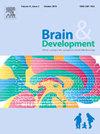Hematopoietic stem cell gene therapy of neurometabolic lysosomal storage diseases
IF 1.3
4区 医学
Q4 CLINICAL NEUROLOGY
引用次数: 0
Abstract
Neurometabolic disorders are rare, inherited monogenic diseases arising from mutations in genes whose products are essential for brain functions and cause local accumulation of toxic substrates. Central nervous system involvement can be severe, is progressive and frequently appears early in life. Current treatment options for neurometabolic disorders are represented mainly by enzyme replacement therapy (ERT) and allogeneic hematopoietic stem cell transplantation (HSCT) which do not sufficiently address clinical manifestations and leave patients with a substantial residual disease burden. Given this unmet medical need, alternative strategies based on genetic manipulation of patient's cells have been developed. Hematopoietic stem progenitor cells-gene therapy (HSPC-GT) entails the harvest autologous HSPCs which are ex-vivo manipulated by means of viral vectors to express the therapeutic gene and infused back into the patient after chemotherapy-based preparation. Modified HSPCs engraft and differentiate into the various hematopoietic cell lineages, producing the functional enzyme at either normal or supranormal levels. The number of clinical trials with HSPC-GT in neurometabolic disorders is rapidly increasing and some HSPC-GT products have recently received market approval. This review focuses on HSPC-GT strategies summarizing the most recent developments in the field of neurometabolic disorders.
造血干细胞基因治疗神经代谢性溶酶体贮积病
神经代谢性疾病是一种罕见的遗传性单基因疾病,其产物对脑功能至关重要,并导致有毒底物的局部积累。中枢神经系统受累可能很严重,是进行性的,经常出现在生命早期。目前神经代谢疾病的治疗选择主要是酶替代疗法(ERT)和同种异体造血干细胞移植(HSCT),这些疗法不能充分解决临床表现,并给患者留下了大量的疾病负担。鉴于这一未满足的医疗需求,基于对患者细胞进行基因操作的替代策略已经开发出来。造血干细胞祖细胞基因治疗(HSPC-GT)需要采集自体造血干细胞,通过病毒载体在体外操纵其表达治疗基因,并在化疗基础制备后注入患者体内。修饰的造血干细胞移植并分化成各种造血细胞系,产生正常或异常水平的功能酶。HSPC-GT治疗神经代谢疾病的临床试验数量正在迅速增加,一些HSPC-GT产品最近获得了市场批准。本文综述了HSPC-GT策略,总结了神经代谢疾病领域的最新进展。
本文章由计算机程序翻译,如有差异,请以英文原文为准。
求助全文
约1分钟内获得全文
求助全文
来源期刊

Brain & Development
医学-临床神经学
CiteScore
3.60
自引率
0.00%
发文量
153
审稿时长
50 days
期刊介绍:
Brain and Development (ISSN 0387-7604) is the Official Journal of the Japanese Society of Child Neurology, and is aimed to promote clinical child neurology and developmental neuroscience.
The journal is devoted to publishing Review Articles, Full Length Original Papers, Case Reports and Letters to the Editor in the field of Child Neurology and related sciences. Proceedings of meetings, and professional announcements will be published at the Editor''s discretion. Letters concerning articles published in Brain and Development and other relevant issues are also welcome.
 求助内容:
求助内容: 应助结果提醒方式:
应助结果提醒方式:


